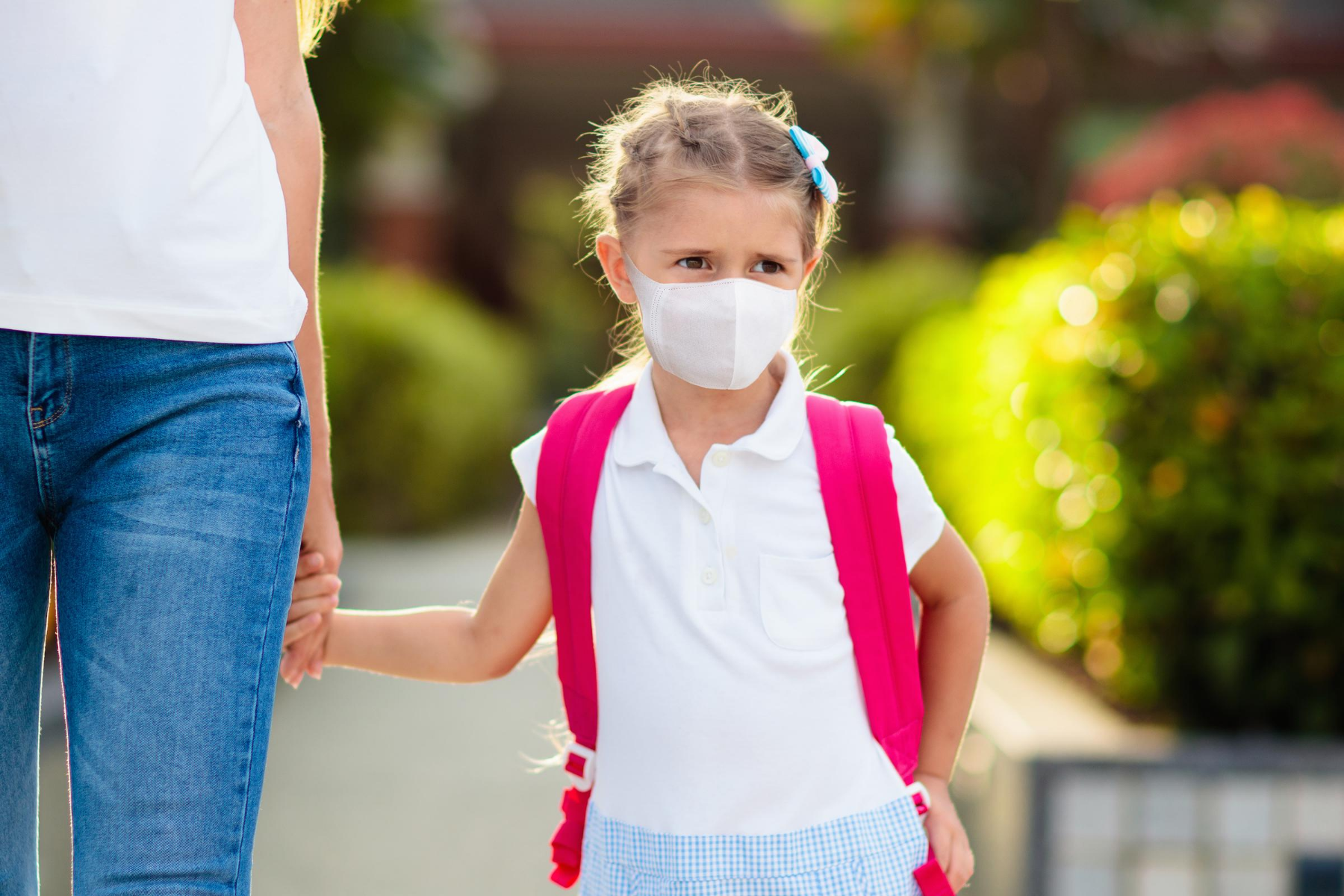 Seasonal store shelves full of inflatable pools and sunscreen have been swapped for colorful backpacks and binders, which can only mean one thing: It’s officially the start of back-to-school season on the First Coast. And for the first time in perhaps ever, face masks and hand sanitizer are as necessary as notebooks and pens for returning to class.
Seasonal store shelves full of inflatable pools and sunscreen have been swapped for colorful backpacks and binders, which can only mean one thing: It’s officially the start of back-to-school season on the First Coast. And for the first time in perhaps ever, face masks and hand sanitizer are as necessary as notebooks and pens for returning to class.
As the pandemic shows no sign of slowing, parents who have decided to send their children back to the traditional brick-and-mortar school setting are doing all they can to figure out how to prevent their kids from contracting COVID-19 — or from spreading this highly contagious virus to others.
“Kids everywhere share drinks, food, pens, toys, and much more,” said MariVi Wright, community partnership manager for THE PLAYERS Center for Child Health at Wolfson Children’s Hospital. “Children are constantly exposed to viruses and bacteria. When those germs are on a child’s hands and he or she then touches his or her mouth, eyes or nose, infections can happen in seconds.”
Cleanliness Can Help Stop the Spread
The most important thing parents can do, Wright said, is to teach their children the ways of proper handwashing every morning before school and encourage frequent handwashing throughout the day. That includes:
- Before and immediately following snacks and lunch
- After using the restroom
- After playing indoors and outdoors
- After wiping or blowing their nose and after coughing or sneezing
- Whenever their hands look, feel or smell unclean
- When a loved one in the house is sick
Additionally, Wright and the Centers for Disease Control and Prevention have a few tips on what parents should tell their kids to do (and not to do) when they get back to school.
DO:
- Wear a face mask, if appropriate.
- Wash hands often.
- Apply an alcohol-based hand sanitizer (when handwashing with soap is not an option).
- Immediately throw away tissues after use.
- Bring a water bottle labeled with your name that does not get shared.
- Stay home from school while ill.
- Take daily asthma medication (if asthmatic).
Children with moderate to severe asthma may be at a higher risk of developing serious symptoms from COVID-19. Various asthma education resources are available through the Community Asthma Partnership at Wolfson Children’s Hospital (CAP-W).
DON’T:
- Sneeze directly into your hands — instead, use a tissue or sleeve from clothing, if necessary.
- Share pencils, pens, books, musical instruments, eating utensils, food, or drinks with others.
- Hug, high-five, or touch other students; maintain as much distance as possible.
- Touch unnecessary surfaces.
- Forget about transportation — make sure your child is wearing a mask on the school bus or in the carpool, along with all other occupants of the vehicle (if appropriate).
Practice (At Home) Makes Perfect
How can parents best ensure their children stick to these suggestions and guidelines? Honestly, it all starts with you — at home.
“Your children will look at you as their model and guide, so make sure you are honest and accurate with the information you share with them,” Wright said. “Answer their questions with age-appropriate responses and be an example for hygiene practices.”
Wright also urged parents to make sure that their children are up-to-date on vaccinations. Along with access to healthcare, immunizations are one of the best ways to prevent diseases, he said.
THE PLAYERS Center for Child Health offers age-appropriate lessons that encourage children to develop healthy habits. The “Germaine, The Germ Thing” program helps children learn how to prevent the spread of germs through effective handwashing. This program is available virtually to schools, after-school programs, and other group settings targeting kids ages 3-7. Additionally, THE PLAYERS Center for Child Health offers free assistance to apply for KidCare or Medicaid for children who are uninsured. Spanish-speaking resources are available. For more information, call 904.202.WELL (9355).
















